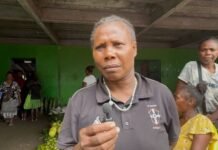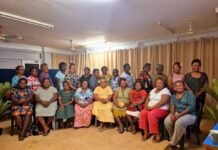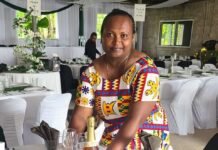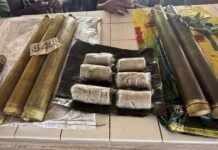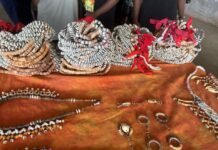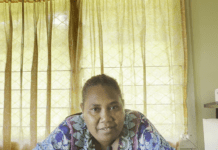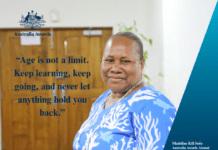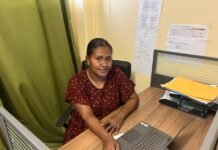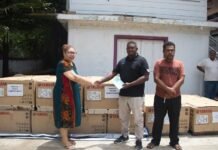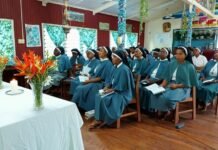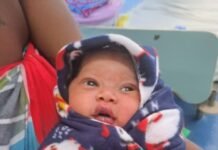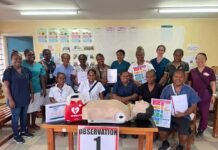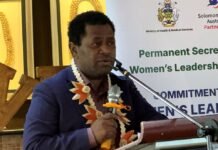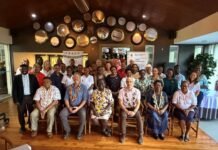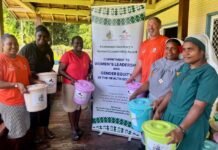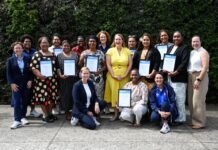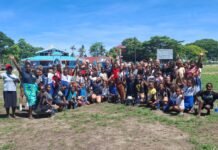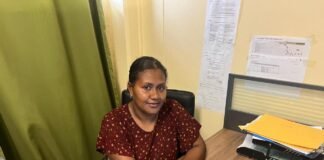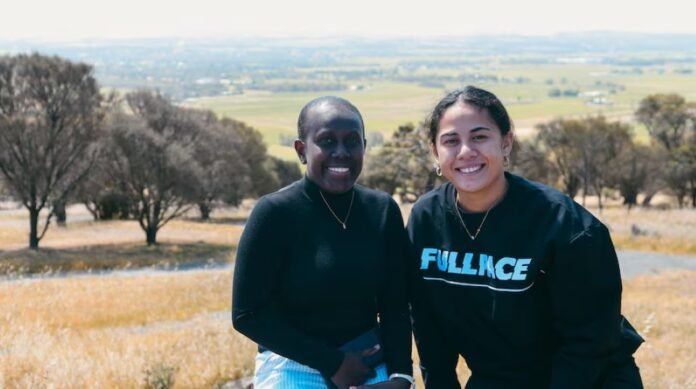
IT might be 5,500 kilometres from her island, but Samoan journalist Manaui Faulalo knows she now has a second home in South Australia’s Barossa Valley.
Manaui is part of a new initiative, coordinated through the peak body for regional newspapers across much of Australia, Country Press Australia, embedding six newspaper journalists from the Pacific with papers in rural Victoria and South Australia,
She worked at the Barossa Valley Leader, in a part of South Australia globally recognised for its wine and agricultural sectors. There, Manaui and Solomon Islands journalist Mavis Podokolo worked across operations, reporting and story gathering, digital marketing, business planning, and even printing operations.
The Samoa Observer, where Manaui normally works, is a daily paper serving the entire country of Samoa, whereas The Leader is a weekly serving a specific area of South Australia.
Nevertheless, she saw profound similarities in the spirit of both mastheads.
“In Samoa, we’re very family oriented with village mentality” says Manaui.
“Making a paper takes a village and that’s what I saw at The Leader, too.”
She says The Leader’s publisher Tony Robinson is directly involved in all aspects of production, with a commitment to transparency and communication within his team.
“Communication is key,” Manaui says.
“Everyone needs to know what’s going on. Everyone knows their role and that’s something that I see at The Observer as well. Family is still at the heart of the paper, and very hands on with everything there too.”
Mavis is a senior journalist at Solomon Islands’ Island Sun newspaper and says the biggest difference was reporting, writing, administration and printing are all handled within the one office at The Leader.
“You get to see the end product of your work, when the words have come to life,” she says.
“We got to engage in news hunting, and be part of the sales and accounts departments. We saw the printing press, and how the machines run when the paper is printed and collated.
“We were part of the whole process of making the newspaper, right from A to Z. For me it was a big learning experience.”
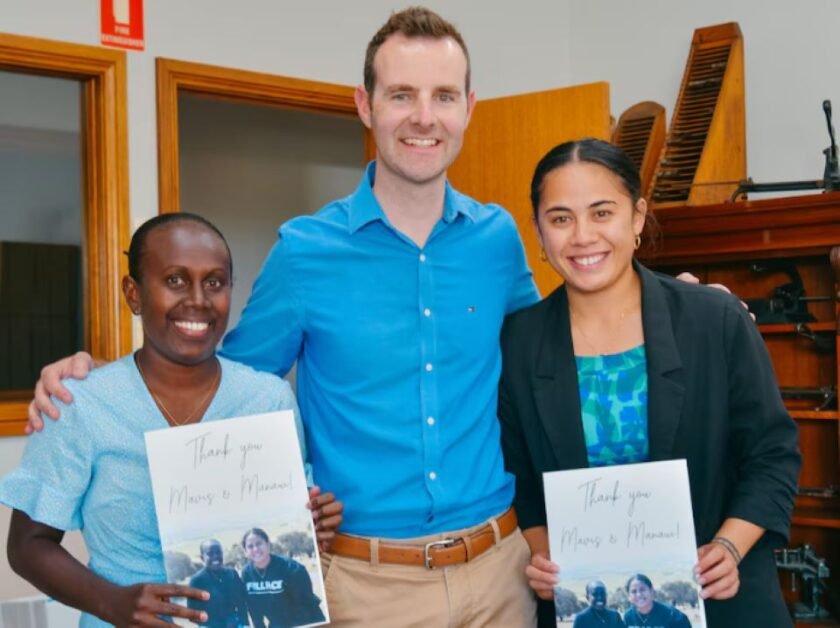
In an article for The Leader and sister paper The Southern Argus, Mavis observed that people in Australia and Solomon Islands perceive media differently.
“What surprised me most during my placement in Australia is how people here understand the role of the media and its importance,” she says.
“In my home country there is still a need to educate people about the media’s role, not only to inform and educate our readers and audience but also to highlight the crucial role the media plays.”
Ensuring the community sees the value in working with their local media, and applying lessons learned in running a newspaper business will be a focus back home for Mavis.
“I’ve gained many insights during my time [in the Barossa Valley], but the key takeaways [are] a stronger understanding of marketing strategies, as well as the opportunity to foster regional connections.”
Leader Editor Mel Siri made sure the visitors sampled the Barossa’s famous Shiraz, and met plenty of local wildlife but professionally, wanted them to see the nexus between community and paper.
“We have such a big focus on rural news, and on our local area and Mavis and Manaui seemed surprised about the contribution we make to the community and the relationships we have,” she says.
“They are from larger, daily papers, they may not be as embedded as we are in the community. They both saw that, and both thought that they’d look for more rural stories to cover on their return home.
“That was nice and affirming for our team. That’s a different experience from what they would have had in a big city like Melbourne or Sydney.”
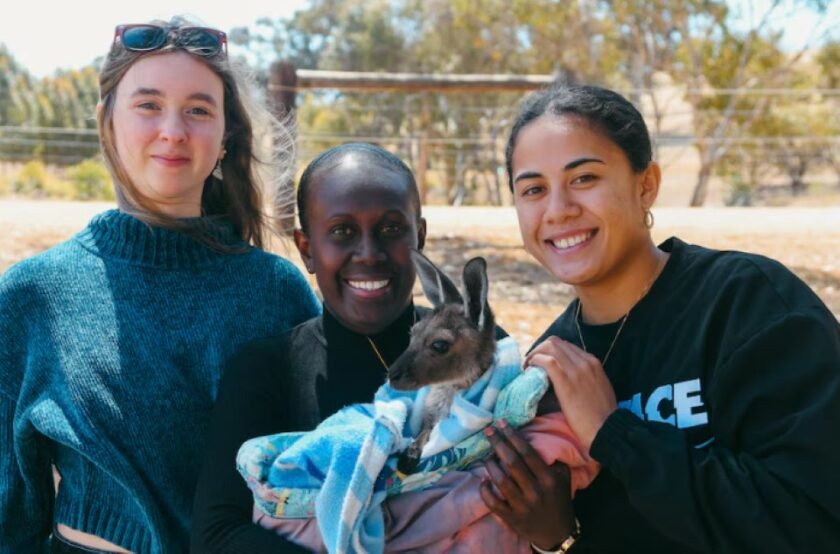
The learnings, though, went both ways.
“It was a fabulous experience for me as an editor too,” Mel says.
“I hadn’t ever had that opportunity to host international journalists before. We talked a lot about the islands, the lifestyle, their working hours. We learned a lot about their structure, their system, their government.”
“And I learned that the challenges of journalism are the same for them too. It’s an international language.You can pick up a journo and plonk them down anywhere in the world, and the things that unite us are stronger than the things that divide.
“That experience was wonderful for our team to see. Journalists the world over have the same challenges, as well as the same skill set, and that curiosity.
“The fact that you can be a villain to someone one day, and a hero the next, depending on who you speak to. It’s not a popularity contest. It’s about being present in the community and advocating for your community.”
Manaui has reflected that sentiment in an article for the Samoa Observer.
“I have learnt that although the people may not always be on our side, that’s okay,” she writes. “As long as the Samoa Observer stands, we will continue to write for the voiceless and those who perhaps have the mic for too long.”
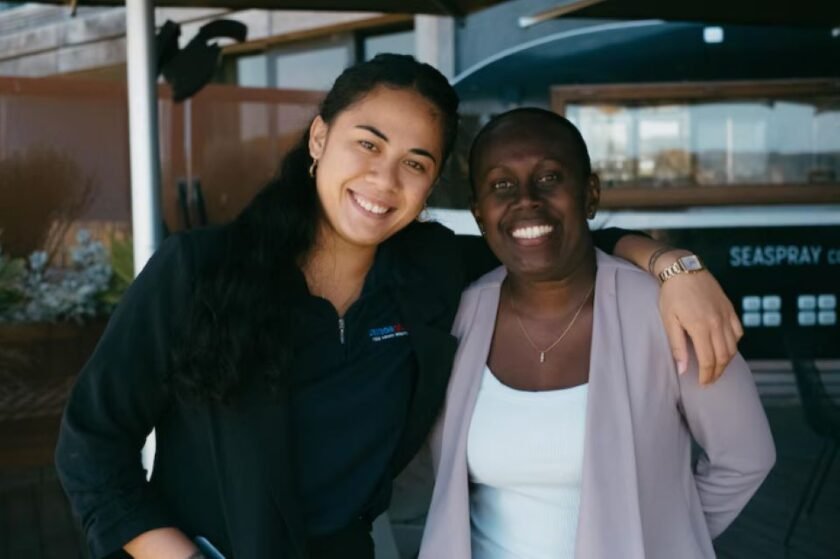
Mavis and Manuai’s placements at The Leader are part of a partnership with Country Press Australia, and delivered through the Pacific Media Assistance Scheme (PACMAS), which is managed by ABC International Development and supported by the Australian Department of Foreign Affairs and Trade.






